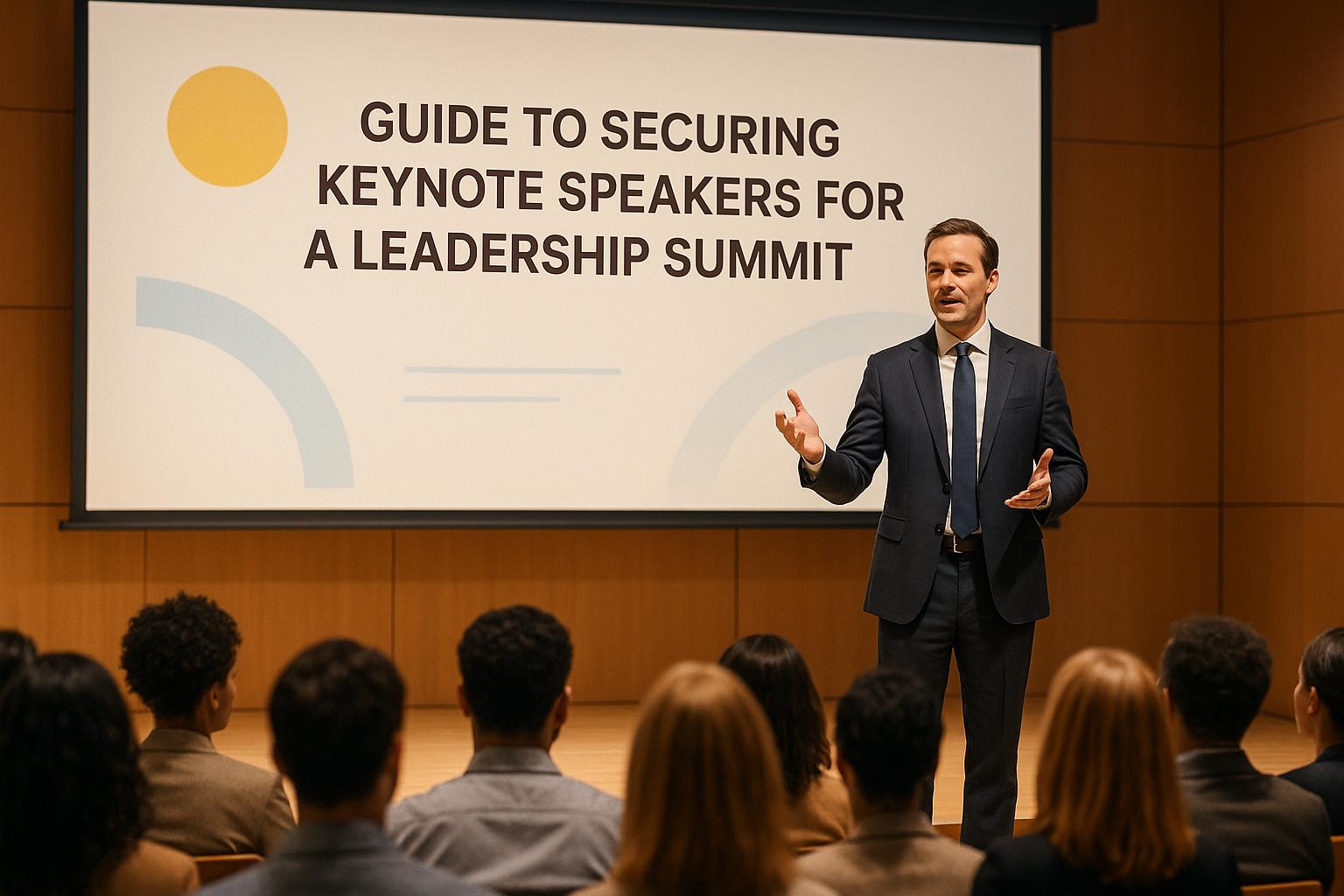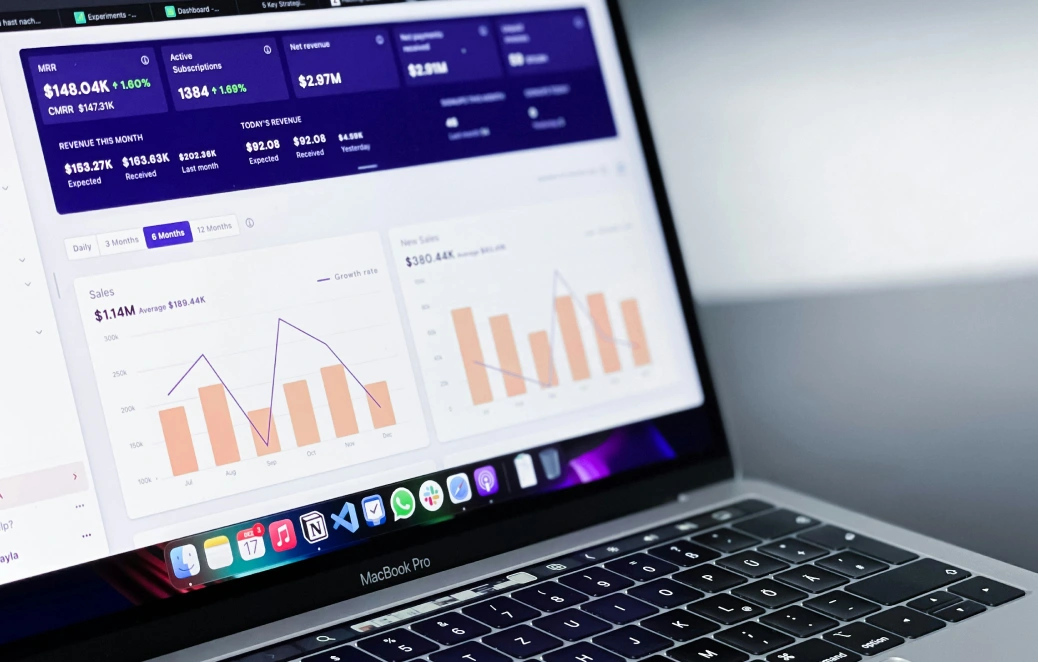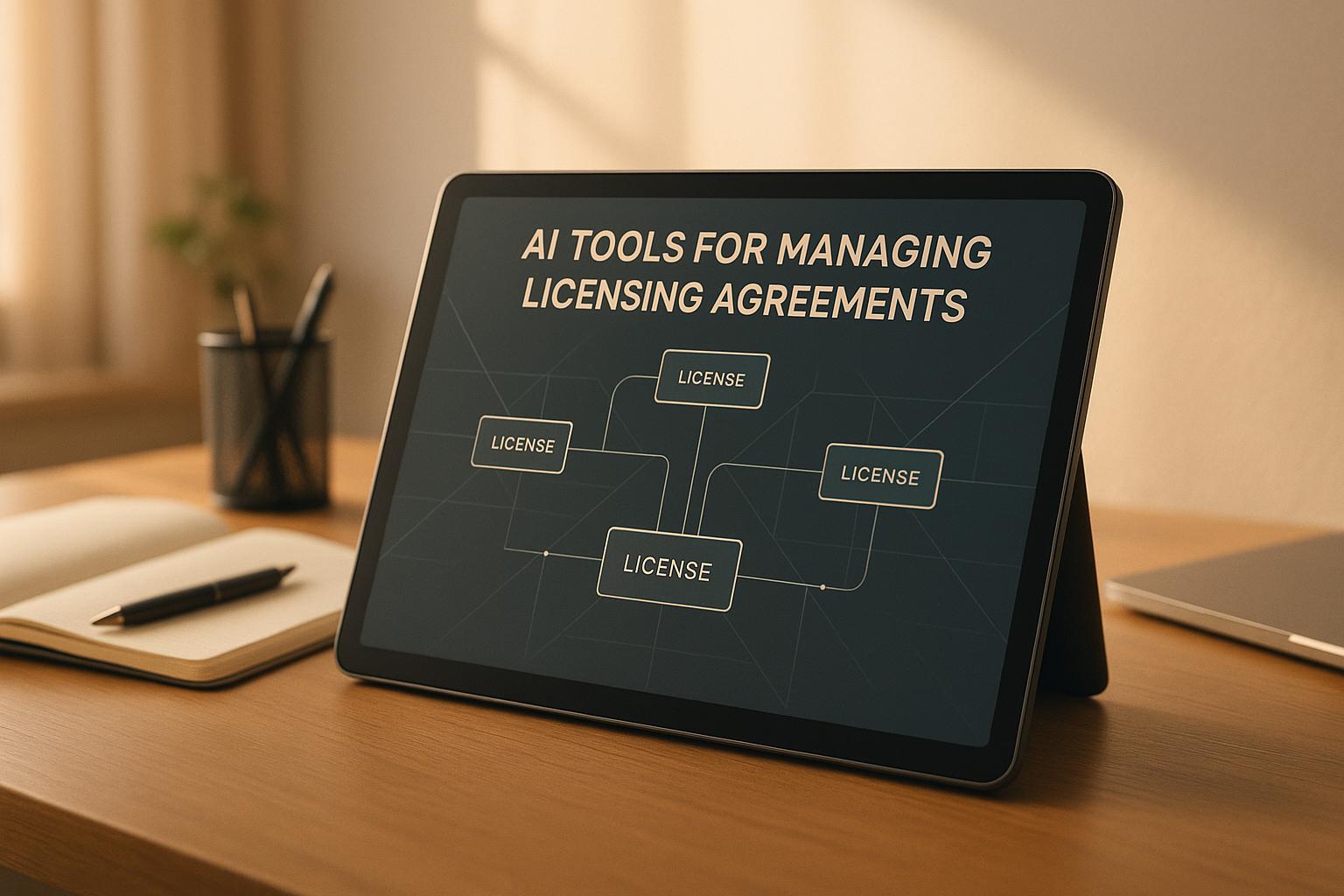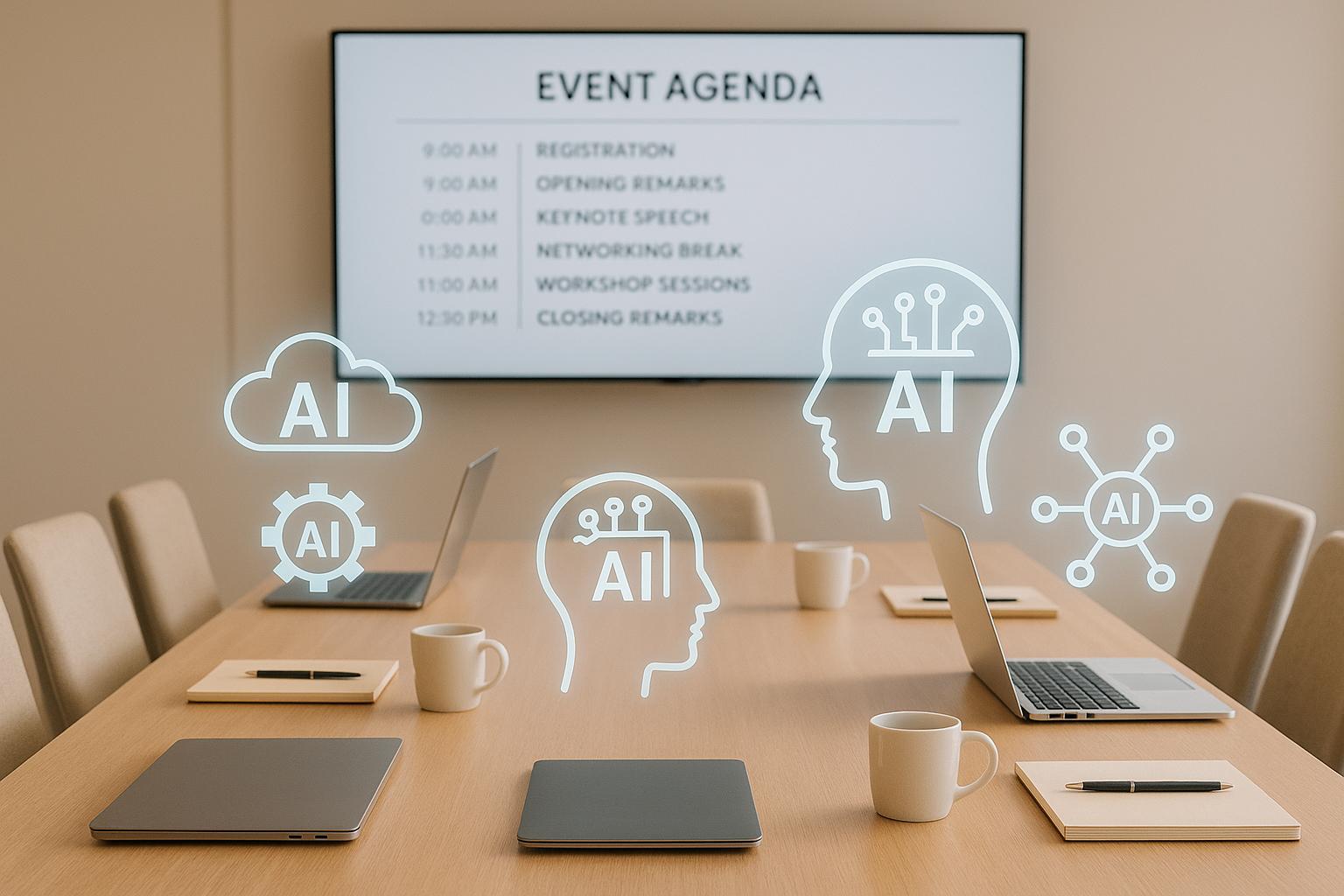Guide To Securing Keynote Speakers For A Leadership Summit

Chief Executive Officer

The success of a leadership summit often hinges on its keynote speaker. A great speaker can inspire, energize, and leave attendees with actionable insights. But how do you find the right one? Here’s what you need to know:
- Start with clear goals: Define what you want the event to achieve. Are you addressing remote leadership, resilience, or industry-specific challenges? Your goals will guide your speaker selection.
- Understand your audience: Study attendee demographics, industries, and challenges. Tailor your speaker choice to their needs and expectations.
- Set clear criteria: Look for speakers with relevant expertise, recent experience, and the ability to engage your audience. Match their style to your event’s format - be it motivational talks, panels, or interactive sessions.
- Research thoroughly: Use speaker bureaus, professional networks, and academic institutions to build a list of candidates. Review recent videos, audience feedback, and their online presence.
- Plan logistics early: Address technical requirements upfront, whether it’s for in-person, virtual, or hybrid events. Test equipment and schedule run-throughs to avoid last-minute surprises.
- Leverage professional support: Event production services can handle speaker coordination, technical setups, and post-event analytics, ensuring a polished experience.
How to Find & Hire a Keynote Speaker
Setting Summit Goals and Speaker Requirements
Before reaching out to potential speakers, it’s essential to establish clear goals for your summit and define what you’re looking for in a speaker. Without this groundwork, you risk ending up with a keynote that might impress but fail to serve your event’s purpose.
Define Event Goals
Start by outlining specific outcomes for your summit. The most impactful leadership summits typically focus on three to five measurable objectives. For example, instead of a vague goal like "improve leadership skills", aim for something more targeted, such as "equip C-suite executives with strategies for leading remote teams" or "provide actionable insights for building resilient organizations during economic uncertainty."
The timing and context of your event also matter. If your summit takes place during a period of industry disruption, your objectives will differ from those of an event focused on growth. Tailor your goals to reflect the real-world challenges and opportunities your audience is facing, rather than relying on generic leadership themes.
Think beyond the event itself. What long-term impact do you want to achieve? Are you hoping attendees will adopt specific methodologies in their organizations? Do you want to shift perspectives on a leadership approach? Or perhaps your aim is to foster a network of senior leaders who continue collaborating after the summit. These broader goals will guide you in selecting speakers who can deliver more than just inspiration - they’ll provide lasting value.
Establishing these goals creates a solid foundation for finding the right speakers.
Know Your Audience
Understanding your audience is crucial for aligning your speaker selection with their needs. Different groups have different priorities, so it’s important to know what challenges and pressures they’re facing. For instance, startup founders will have different concerns than Fortune 500 executives, and tech leaders won’t necessarily share the same priorities as those in healthcare or manufacturing.
Analyze your registration data and feedback from past events to get a clearer picture. Look at the industries represented, the size of attendees' organizations, and their geographic locations.
Generational differences also play a role. Millennial leaders often value authenticity and purpose-driven messaging, while Gen X executives may gravitate toward practical, results-oriented strategies. Baby Boomer leaders, on the other hand, might prefer speakers with extensive experience and proven track records.
Consider the business climate your audience is navigating. Are they dealing with rapid digital transformation, focusing on sustainability, or addressing workforce challenges? Your speaker should offer insights that directly address these pressing issues.
It’s also worth considering the emotional mindset of your attendees. Are they optimistic about growth, or are they navigating uncertainty and looking for stability? During challenging times, speakers who combine practical advice with encouragement can make a meaningful impact.
By aligning your speaker search with these audience insights, you’ll ensure the speaker not only educates but also connects on a deeper level.
Set Speaker Requirements
Once your goals and audience profile are clear, it’s time to define the criteria for your speakers. Their expertise should align with your summit’s themes, but it needs to be relevant and timely. A speaker who led a major transformation five years ago might not offer the same value as someone currently navigating similar challenges. The fast pace of the business world demands up-to-date insights and strategies.
Effective speakers should be able to translate complex ideas into actionable takeaways, tell engaging stories, and keep the audience’s attention. They also need to have credibility with your specific audience. Leaders can quickly spot someone who hasn’t faced the same challenges they have. A speaker with only academic or consulting experience might struggle to connect with executives who’ve made tough, high-stakes decisions.
Match the speaker’s style to your event’s format and audience preferences. Some speakers excel at delivering high-energy, motivational talks, while others are better at facilitating thoughtful, strategic discussions. Decide whether you want someone to challenge conventional thinking or provide practical frameworks that attendees can implement right away.
Diversity in your speaker lineup is also important. This goes beyond demographics - it’s about including voices with varied backgrounds, experiences, and perspectives. A mix of viewpoints enriches the conversation and provides attendees with a broader range of insights.
Finally, consider logistical factors like availability, budget, and technical requirements. A speaker with complex travel or tech needs may not be feasible for your event. Be realistic about what you can accommodate while staying focused on finding someone who meets your core criteria.
Finding and Reviewing Potential Speakers
Once you've established your speaker criteria, the next step is to build a strong list of candidates. A thorough and methodical search process helps you secure excellent speakers while avoiding costly missteps.
Use Reliable Sources
Start with trusted resources like speaker bureaus and industry associations. These organizations provide extensive directories, assist with negotiations, and often offer support services. For example, groups like Washington Speakers Bureau and Leading Authorities represent prominent executives, former government officials, and thought leaders who frequently present at corporate events.
Your professional network can also be a goldmine for speaker recommendations. Reach out to colleagues who have organized similar events and ask for their insights. Platforms like LinkedIn are particularly useful here - search for executives who have spoken at recent leadership conferences, and review their posts to get a sense of their communication style and expertise.
Don't overlook academic institutions, especially business schools with executive education programs. Professors in leadership and management often combine practical experience with the ability to translate complex ideas into actionable advice. Plus, years of teaching usually mean they’re skilled at engaging audiences.
Another option is to explore corporate speakers bureaus within large companies. Many organizations allow their executives to speak at external events, especially when there’s mutual benefit. This is a great route if you’re looking for industry-specific knowledge or niche expertise.
Check Speaker Background
Review recent speaker videos - preferably from the past 12 to 18 months - to evaluate their style and content. Pay close attention to how they handle Q&A sessions, as this often reveals their ability to think quickly and connect with the audience.
Ask for audience feedback from similar events. Promotional materials can only tell you so much, so request references and ask detailed questions about the speaker's preparation, punctuality, and adaptability. Also, find out whether their presentation had a lasting impact - did attendees continue discussing their ideas, or did the talk fade from memory?
Check their digital presence to confirm their expertise is current. A speaker’s LinkedIn activity, published articles, and social media posts can provide valuable insights into their approach and communication style.
Media appearances - such as TV interviews, podcasts, or panel discussions - can also highlight how they perform under pressure and engage with different types of audiences. Additionally, look for recent awards or promotions, as these can indicate their relevance in fast-evolving industries.
Finally, conduct a quick Google search to uncover any recent news or controversies. This step ensures there won’t be any surprises that could detract from your event.
Explore New Speaking Formats
The growing popularity of hybrid and virtual events has opened up exciting possibilities. Without geographic constraints, you can now consider international speakers who might have been too expensive to bring in for an in-person event.
Experiment with interactive formats like live polling or breakout discussions to increase engagement. Consider panel discussions for tackling complex topics from multiple angles, fireside chats for more personal and conversational insights, or micro-sessions (15-20 minutes) for delivering sharp, actionable takeaways. For tech-savvy audiences, VR/AR presentations can create immersive and memorable experiences.
The key is to align the format with both your speaker’s strengths and your audience’s preferences. A high-energy speaker might excel in an interactive session, while a more reflective thinker could shine in a fireside chat or panel discussion.
With a well-researched list of potential speakers and a clear understanding of various presentation formats, you're ready to move forward with contacting and securing the perfect keynote talent.
Contacting and Booking Keynote Speakers
Booking a keynote speaker isn’t just about sending an invite - it’s about clear communication, organized outreach, and attention to detail. These elements are key to securing top-tier speakers while avoiding common challenges that could disrupt your leadership summit.
Write Clear Initial Contact
Your first email sets the tone. To grab the speaker’s attention, craft a concise subject line that includes your organization’s name, event date, and the word "keynote." For example: "ABC Corporation Leadership Summit - March 15, 2026 Keynote Opportunity."
In the body of your email, provide the essential details up front: the event date, location, expected audience size, and the speaker’s role. Make sure to describe the audience - whether it’s C-suite executives, mid-level managers, or emerging leaders - so the speaker can gauge whether their expertise aligns with your event.
Be upfront about your timeline and decision-making process. If you’re reaching out to multiple speakers, let them know it’s an early-stage inquiry and provide a clear deadline for their response. Transparency builds trust and avoids misunderstandings. During these initial conversations, also discuss key details like the length of the presentation and the event format. Keep a record of all communications and confirm any verbal agreements in writing for clarity and accountability.
Once you’ve established clear communication, shift your focus to technical logistics to ensure a smooth presentation.
Address Technical Requirements
Technical details can make or break a presentation, so it’s important to address them early. Requirements can vary widely depending on whether your event is in-person, virtual, or hybrid, so tailoring your approach is crucial.
For in-person events, create a detailed technical checklist that includes projectors, screens, microphones, lighting, and the stage setup. Specify compatibility requirements and ask about the speaker’s audio-visual preferences. For example, some speakers may have strong preferences for microphone types, such as wired vs. wireless or lavaliere vs. handheld, which can impact their comfort and delivery.
Virtual and hybrid events come with their own set of challenges. Provide speakers with access to the event platform well in advance and arrange for a technical run-through. Features like screen sharing, audience Q&A, and live polling often require extra preparation. A practice session can help speakers familiarize themselves with the platform and fine-tune audio and video settings.
For all event types, test every piece of equipment - microphones, laptops, projectors - and confirm that the speaker’s presentation materials are compatible with your setup. Always have backup copies of presentations on USB drives, double-check microphone functionality, and review the stage layout with your event team. Establish clear communication with AV technicians and prepare contingency plans for potential technical hiccups.
For hybrid events, where some speakers might join virtually, clarify their platform preferences, internet requirements, and any additional needs like lighting or professional-grade cameras. These details ensure their visual and audio quality matches your event’s production standards.
sbb-itb-ae35a94
Using Event Production Services for Speaker Management
Once you’ve secured your keynote speaker, the real work begins. Ensuring their presentation goes off without a hitch and providing ongoing support can be a tall order, even for seasoned event planners. That’s where professional event production services come in, handling the intricate details and ensuring your leadership summit flows seamlessly from start to finish.
Comprehensive Speaker Support
Event production teams don’t just manage logistics - they guide speakers through every step of the process. From organizing pre-event calls to distributing questionnaires, they ensure that the speaker’s message aligns perfectly with your summit’s goals. This alignment ensures the event maintains a consistent theme and resonates with the audience.
One standout service is speaker coaching. Production experts help less experienced speakers polish their presentation skills, refining both the content and delivery to turn them into confident, engaging presenters.
Corporate Optics, for example, focuses on coordinating with internal teams and meticulously planning show flows to ensure that speaker content aligns with your company’s broader objectives. This means every presentation doesn’t just inform - it reinforces your strategic goals.
To keep everything on track, production teams establish detailed show flows and schedule regular check-ins with speakers. Pre-event rehearsal calls are also a key part of the process, giving speakers the chance to practice and fine-tune their presentations before stepping onto the stage.
Flawless Technical Execution
A keynote presentation is only as good as its technical setup, and production services ensure everything runs smoothly. They provide audio/visual support to guarantee crisp sound and clear visuals, whether your summit is in-person, virtual, or hybrid.
Corporate Optics excels in areas like audiovisual design, scenic and lighting production, and live-streaming capabilities. Their technical teams carefully align speaker presentations with the event’s staging, ensuring that elements like lighting and screen placement enhance the speaker’s message. For hybrid events, they manage the complex task of integrating live and virtual audiences, maintaining a professional experience across all platforms.
The technical setup often includes custom stage designs tailored to each speaker’s style, as well as contingency plans for any unexpected issues. This allows speakers to focus entirely on delivering their message while the production team handles the behind-the-scenes details.
Tracking Event Success
Understanding how your keynote speakers performed is essential for improving future events. Corporate Optics offers post-event analytics to measure speaker performance, audience engagement, and overall event success. These insights show which speakers resonated most with attendees and which formats generated the highest levels of interaction.
Data collection includes audience participation metrics, social media activity during presentations, and feedback scores for individual speakers. This information provides a clear picture of what worked and helps you make informed decisions for future summits.
Corporate Optics also integrates artificial intelligence tools through its partnership with prompts.ai. This AI-driven approach uncovers deeper insights into speaker performance and audience behavior that traditional reporting might miss. By combining cutting-edge analytics with expert production services, you not only elevate the quality of your speakers’ presentations but also gain actionable data to refine your strategy for future events.
Software and Tools for Speaker Booking
Organizing keynote speakers for a leadership summit involves juggling numerous details - from the initial outreach to the final preparations. Thankfully, digital tools can simplify these tasks, making the entire process more efficient and organized.
Digital Tools for Speaker Management
Speaker management platforms are a game-changer for event planners. These tools centralize communication, track interactions, and ensure follow-ups don’t fall through the cracks. By keeping everything in one place, they minimize the risk of overlooking essential booking details. Beyond basic coordination, some of these tools now offer features that tie into broader event production needs.
Integrated Event Production Solutions
Some advanced platforms take it a step further, offering comprehensive event support. These solutions combine speaker booking with digital event production, making coordination seamless. They even incorporate AI tools to refine speaker selection and improve engagement. For example, Corporate Optics blends speaker management with technical event production services. Their collaboration with prompts.ai introduces AI-driven tools to help fine-tune speaker choices and enhance the overall audience experience.
Conclusion: Main Points for Booking Keynote Speakers
Booking keynote speakers requires careful planning and attention to detail. The process begins with clearly identifying your event’s goals and understanding what your audience values most. These steps lay the groundwork for finding the perfect match.
Research is key to making your event stand out. Dive into each potential speaker’s background, review their recent presentations, and make sure their expertise aligns with your event’s theme. Tailor your event format to highlight the speaker’s strengths and maximize their impact.
Your initial outreach plays a crucial role in setting the tone. Personalized messages that show you’ve taken the time to understand the speaker’s work go a long way. Clearly explain why they’re an ideal choice for your audience. During contract negotiations, address technical requirements early to avoid any last-minute surprises.
Once the speaker is confirmed, smooth logistics are essential. Professional event production services can turn the complex task of speaker management into a seamless experience. These services handle everything from technical setups to performance tracking, and AI-powered tools can make the speaker selection process more precise while enhancing attendee engagement.
In addition to professional support, the digital tools you use for coordination can be game-changers. Centralized platforms help keep everything organized, ensuring no detail is overlooked as the event date approaches.
Ultimately, booking keynote speakers is about crafting unforgettable experiences that leave a lasting impression. By combining strategic preparation, expert support, and effective technology, you can create an event that resonates with attendees long after it’s over.
FAQs
How do I choose a keynote speaker who will connect with my audience and align with my event goals?
To pick a keynote speaker who truly connects with your audience and supports your event's goals, start by defining the purpose of your event and the core message you want to deliver. Think about your audience - what are their interests, challenges, and expectations? This will help you find a speaker whose expertise and style will strike the right chord.
Once you have a clear idea, dive into researching potential speakers. Watch videos of their past talks, read testimonials, and review their experience with similar audiences or themes. This will give you a sense of how well they might align with your event.
When you reach out to potential speakers, share details about your event goals and audience profile. This helps them tailor their presentation to meet your needs and ensures their message lands effectively with your attendees.
How can I effectively manage the technical setup for both in-person and virtual keynote presentations?
To ensure the technical setup runs smoothly for both in-person and virtual keynote presentations, preparation is key. Start by making sure the speaker understands the event format and has all the tools they need for a flawless delivery.
For in-person events, test the audiovisual equipment, stage layout, and microphones well ahead of time. For virtual events, double-check that the speaker has a reliable internet connection, a good-quality camera and microphone, and is comfortable using the chosen conferencing platform.
Having a dedicated technical support team on standby during the event can be a lifesaver if any unexpected issues arise. Clear communication about technical requirements and scheduling a rehearsal session can also make a big difference in creating a smooth and professional presentation experience.
How can professional event production services simplify the process of securing and managing keynote speakers for a leadership summit?
When it comes to securing and managing keynote speakers for your event, professional event production services can take a huge load off your shoulders. These experts handle the nitty-gritty details, from logistics to organization, making the process much smoother. Thanks to their established networks and industry connections, they can help you find and book speakers who perfectly align with your summit's leadership themes.
Beyond just finding the right speaker, these services also take care of critical tasks like negotiating contracts, managing schedules, and coordinating technical needs such as audio-visual setups. Their expertise allows you to shift your focus to creating engaging content and delivering an unforgettable experience for your attendees, while they handle the behind-the-scenes complexities.
Related Blog Posts









